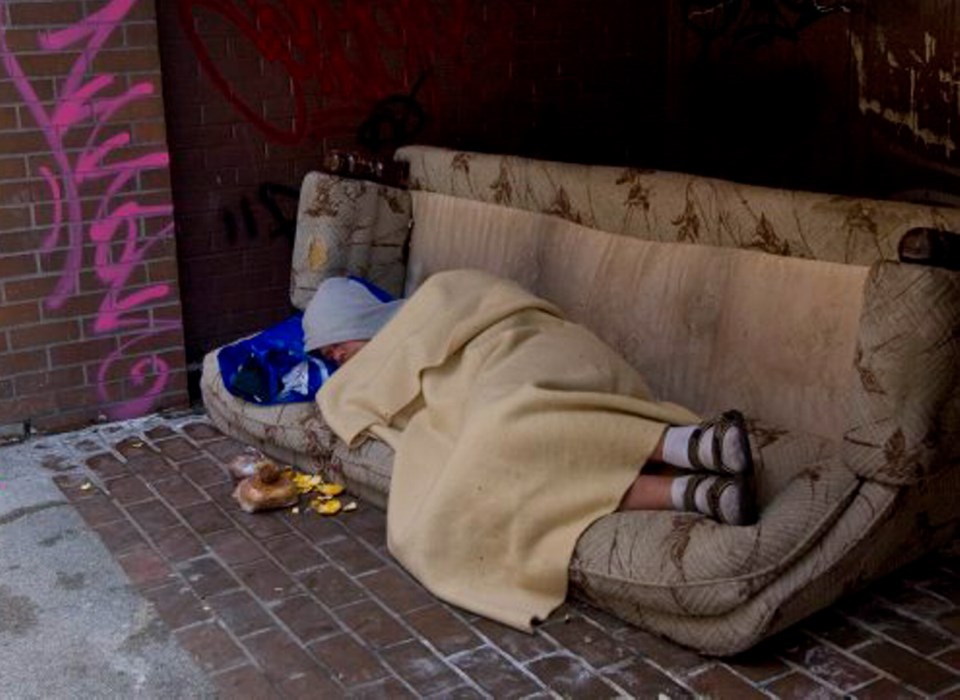You’re probably familiar with the phrase: “There, but for the grace of God, go I.” It might be a cliché, but as we consider the discussion around the homeless in Victoria, that cliché is an inescapable truth.
I spent more than a decade ministering to “street people” on Vancouver’s Downtown Eastside. I can’t remember what, if any, preconceived notion I had when I first walked into Rainbow Mission near Oppenheimer Park that warm night in 2004, but this much quickly became apparent: Any one of us is one misstep away from the cascade of events that leads to a similar situation.
One fellow I met made some bad business choices, which cost him his wife, his home, his income. Well into his 70s, a good 40 years since that muckrain fell on him, he was still wading through a mire of self-loathing and self-pity.
Some were injured on the job, like Kris, who beat a drug habit only to slip and fall while working on the Bear Mountain development, and painkillers gave way to crack cocaine. There was Herbie, who blew out his knees and couldn’t continue in the plumbing trade.
Len was a professional engineer, but somewhere along the line, his mind threw a piston and now he rarely speaks in coherent sentences — not coherent to us, anyway.
Marty was a teacher who fell into a drug habit and has been struggling for the past several years to regain his life. Bill, one of the gentlest souls I’ve ever met, is too old to work and, without a retirement plan, spends his days pushing a cart around the streets, collecting bottles and cans and anything else saleable.
The level of intelligence is incredible. They ask profound questions, often about the Bible; some write brilliantly, others are amazing artists. They have a sense of humour that has obviously seen them through some tough times. For me, and for many others ministering to them, they became family.
I’m not trying to sugar-coat the scene, but we need to break through the coating of spiritual barbed wire that covers our picture of “street people.”
Yes, there are some angry, dangerous dudes there, with criminal records and pasts that some would deem undesirable.
Yes, there are freeloaders — the ones some letter-writers to this paper claim will flood into Victoria if they hear there’s free housing to be had — but you’ll find those sorts of people in any walk of life.
Yes, any Skid Row and its people can be scary, but perhaps the scariest part of all is not how different they are to us, but how similar.
If something is scary, the antidote is not to run and hide or to vilify and ignore, but to remember the words of the Apostle John: “Perfect love casts out fear.” Jesus Christ calls us to love the unlovely, to give grace even when we don’t think someone deserves it, and to give a “cup of cold water” to someone in need.
He also calls His followers to be His witnesses “in Samaria” — the Downtown Eastside, Pioneer Square in Seattle, New York’s Bowery or any place where street people congregate are today’s equivalents of Samaria.
What Jesus does not call us to do, is to “triage” people according to our perception of how they got into that situation.
What’s the solution? It’s a complicated issue, and a top-down approach, dictating what people need, hasn’t worked in other cities. I believe Mayor Lisa Helps is to be commended for reaching out to the affected people to include them in the conversation. (And 20 bucks a head is money well spent, if it ensures that we hear as many voices as possible and the discussion isn’t dominated by a relative few self-appointed advocates. It might not be neat or pretty, but that’s democracy.)
This much I do know: No solution will succeed if it’s not founded in love and the recognition of the inconvenient truth that we are not dealing with a “subset” of society, but with reflections of ourselves.
Drew Snider is a former Victoria broadcaster who spent seven years as an associate pastor at Carrall Street Church/Gospel Mission in Vancouver.



